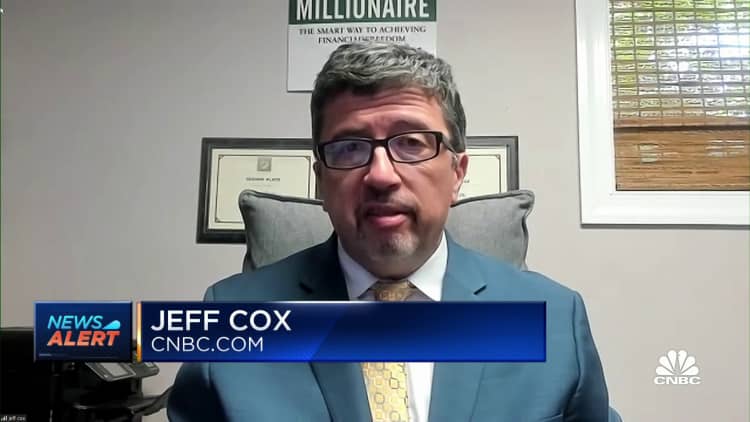
Tumult in mid-sized institutions caused banks to tighten lending standards both to households and businesses, potentially posing a threat to U.S. economic growth, according to a Federal Reserve report Monday.
The Fed's quarterly Senior Loan Officer Opinion survey said requirements got tougher for commercial and industrial loans as well as for many household-debt instruments such as mortgages, home equity lines of credit and credit cards.
The loan officers further said they expect troubles to persist over the next year, owing largely to diminished expectations for economic growth as well as fears over deposit outflows and reduced risk tolerance.
Asked their expectations for the next year, respondents gave a fairly gloomy outlook of what's ahead.
"Banks reported expecting to tighten standards across all loan categories," the report said. "Banks most frequently cited an expected deterioration in the credit quality of their loan portfolios and in customers' collateral values, a reduction in risk tolerance, and concerns about bank funding costs, bank liquidity position, and deposit outflows as reasons for expecting to tighten lending standards over the rest of 2023."
At the same time, the survey showed that demand weakened across most categories.
In particular, the report showed "tighter standards and weaker demand" for commercial and industrial loans, an important bellwether for economic growth. Those conditions were seen across all business sizes.
Also, the report showed the same conditions across commercial real estate categories.
"There has been an ongoing tightening of lending conditions. And that is part of part of the process by which monetary policy works," Treasury Secretary Janet Yellen told CNBC's Sarah Eisen in response to a question about the report in a Monday "Closing Bell" interview. "The Fed is aware that tightening of credit conditions is something that will tend to slow the economy somewhat. And I believe they are taking this into account in deciding on appropriate policy."
The survey was being closely watched on Wall Street to gauge the fallout from troubles in the banking industry that accelerated in early March.
That's when regulators shuttered Silicon Valley Bank and Signature Bank following a run on deposits spurred by a loss of confidence that the institutions would have the liquidity to meet their obligations.
Since then, JPMorgan has taken over First Republic Bank following similar troubles at that firm, and UBS bought rival Credit Suisse after the latter needed rescuing.
Even with the banking troubles, the central bank last week decided to raise interest rates for the 10th time since March 2022. Policymakers already had seen the SLOOS report before their meeting concluded Wednesday, and Fed Chair Jerome Powell said conditions are about as expected considering what has happened in the sector.
"The SLOOS is broadly consistent when you see it with how we and others have been thinking about the situation and what we're seeing from other sources," Powell told reporters. "Banking data will show that lending has continued to grow, but the pace has been slowing really since the second half of last year."
At the March meeting, the Fed's own economists warned that a shallow recession was likely later in the year because of the tightening standards resulting from the banking problems.


